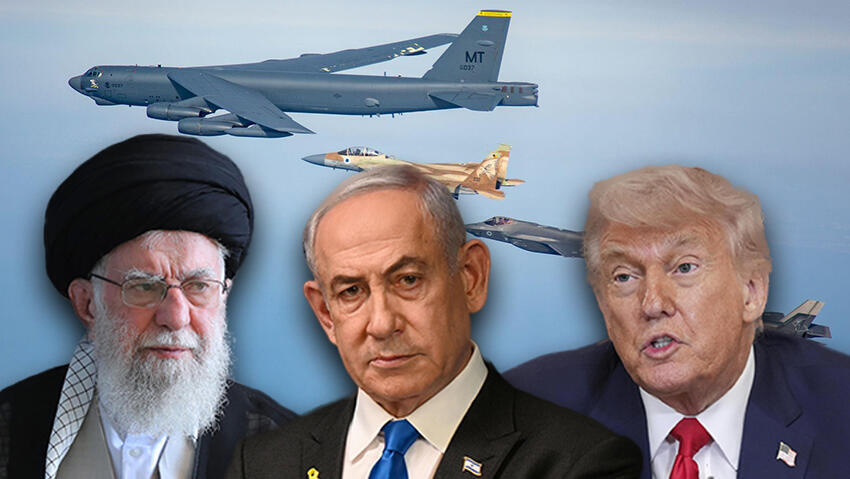According to the officials, President Donald Trump’s cease-fire proposal was effectively accepted unanimously, without a vote. “The most important outcome is shattering the myth that Iran is untouchable by Arab countries or global powers. Israel showed how it acts,” said one source. They added that “this is a cease-fire with no binding commitments on either side.”
1 View gallery


Ali Khamenei, Benjamin Netanyahu, Donald Trump
(Photo: GPO, Reuters/Evelyn Hockstein, Iranian Leader’s Press Office – Handout/Getty Images, IDF)
Israeli sources believe the U.S. will soon launch a new diplomatic initiative with Tehran, likely mediated by Qatar—a country whose role has grown in American eyes due to its facilitation of the cease-fire. Israeli officials view Iran as a clear loser in the recent military escalation: It has no current enrichment capabilities, no nuclear scientists, and no access to the enriched uranium it had stockpiled, the fate of which is now expected to be decided in negotiations with Washington.
The U.S. plans to press Iran to allow the return of International Atomic Energy Agency (IAEA) inspectors. In a UN Security Council update, the U.S. said the recent strikes on Iran had achieved the narrow objective of impairing its ability to produce a nuclear weapon.
However, a CNN report revealed a more cautious assessment from the Defense Intelligence Agency (DIA). According to the report, the American strikes on three nuclear sites did not destroy key components of Iran’s nuclear infrastructure and only delayed the program by several months. The DIA’s assessment—yet to be made public—contradicts statements by Trump and Defense Secretary Josh Gustin that the nuclear program was “completely eliminated.”
Sources cited by CNN said Iran’s stockpile of enriched uranium was not affected and that most of its centrifuges remain intact. The White House confirmed the existence of the assessment but said the administration rejected its conclusions.
The report further revealed that much of Iran’s enriched uranium stockpile had been moved out of the targeted facilities before the strikes, allowing Tehran to maintain near-total control over the core components of its nuclear program. The implication: If Iran decides to move forward, it could still produce a nuclear weapon relatively quickly. Israeli sources told the Times they believe Iran preserved small-scale enrichment facilities designed to allow continuity in the event of strikes on its larger sites.
In contrast, Iran’s missile program has suffered a major blow. Officials say Iran no longer has the capability to produce ballistic missiles at its previously planned scale. It is believed to have about 1,000 long-range missiles left—now viewed as a “last-resort” weapon. Scenarios involving Iran purchasing a ready-made nuclear bomb from another country were dismissed by officials, due to expected opposition from both the U.S. and Israel.
Ministers who attended Tuesday’s cabinet meeting said Netanyahu appeared particularly satisfied. One minister remarked: “Netanyahu feels everything is going his way—the bill to dissolve the Knesset failed, draft principles were agreed upon, he struck Iran, and Israel is coming out of this round looking strong. These were his best 12 days in the past two and a half years.”




